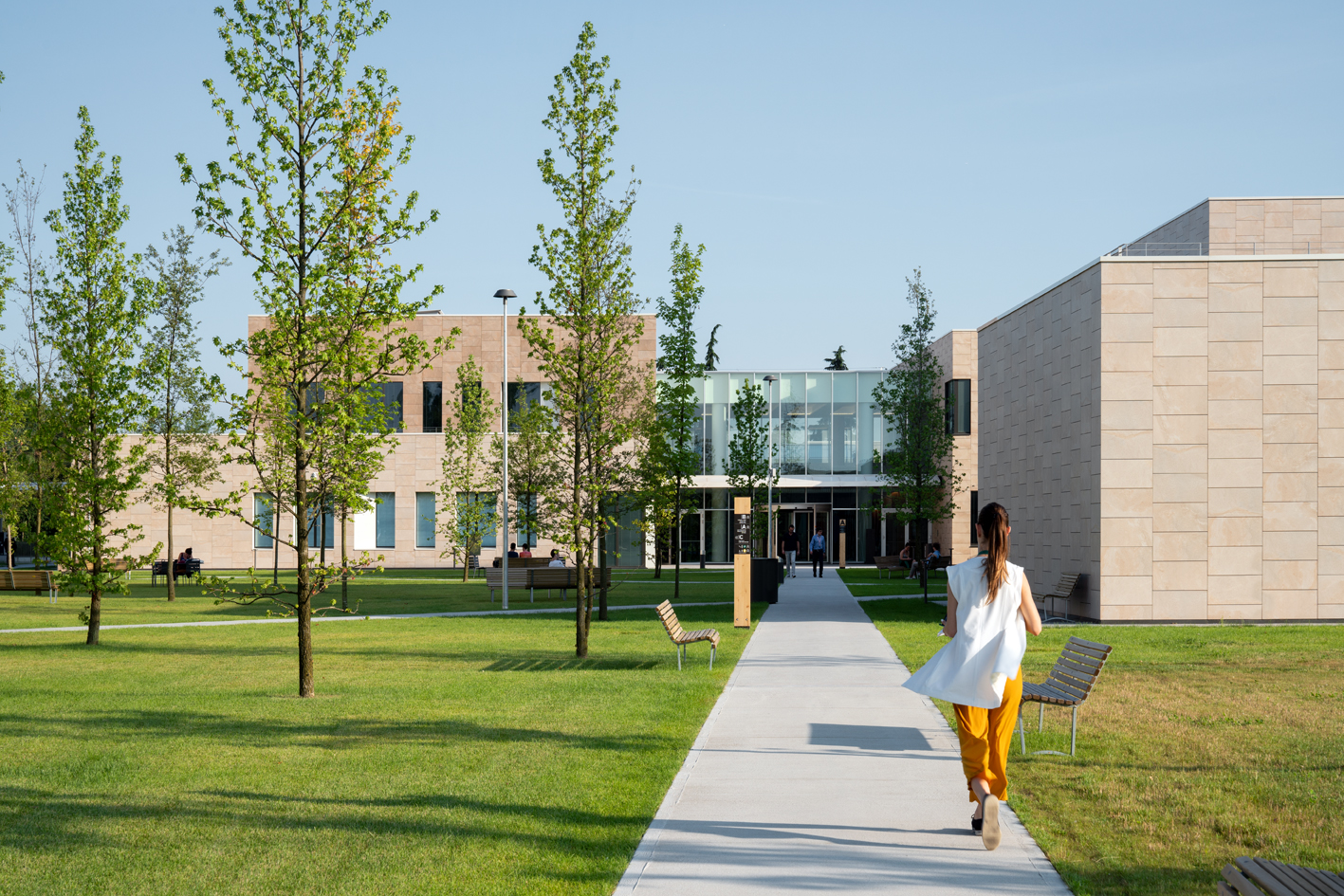An international university dedicated to the life sciences in Milan. Education and training fully integrated with Humanitas Hospital and the Scientific Research Center
A university highly focused on the growth of its students, their training, their clinical and research careers, in Italy and overseas. Offering undergraduate and postgraduate studies with Medical Specialty Schools, as well as masters, advanced training programmes and PhDs.
Internationalisation, innovation, interaction, integration with the Hospital and the Research Center: this is how we live university education, within a smart campus technologically advanced in its infrastructure and its services.

The course
All our courses are inspired by the concept of active learning, carefully balancing theory and practice to ensure that our students develop critical and autonomous thinking skills alongside specific professional competences.
Humanitas University prepares its students to thrive in the clinical and research areas in Italy or overseas. An international and stimulating environment frames all our courses at Humanitas University. We seek to support our students’ personal and professional growth and believe in nurturing a spirit of collaboration, curiosity and responsibility.
Today Humanitas University hosts 2000 among undergraduate and postgraduate students. Undergraduate students are divided into 4 courses:
- MD in Medicine and Surgery (English) – 190 students per year
- MEDTEC School (English) – 80 students per year
- Bachelor’s degree in Nursing (Italian) – 165 students per year
- Bachelor’s degree in Physiotherapy (Italian) – 50 students per year
- Bachelor’s degree in Biomedical Laboratory Techniques (Italian) – 25 students per year
- Bachelor’s degree in Imaging and Radiotherapy Techniques (Italian) – 25 students per year
Integration with Humanitas hospitals
IRCCS Istituto Clinico Humanitas is the first Italian hospital to be quality-certified as an Academic Hospital by the Joint Commission International, heading a group of hospitals in Italy, located in Milan, Bergamo, Castellanza, Turin and Catania.
It is one of the most technologically advanced European hospitals and internationally renowned for its research on immune system diseases. Humanitas has specialist units treating oncological, cardiovascular, neurological, orthopaedics, autoimmune and inflammatory diseases. It also has a top Eye Centre, an outstanding Fertility Centre and a highly specialised Accident and Emergency department. Medical assistance, supported by the best professional knowledge and a multidisciplinary approach, is complemented by constant research activities aimed at improving and personalising treatment.
International dimension
Humanitas attracts young people from Italy and from all over the world and offers the opportunity to engage in a unique kind of education. It is an international hub for the training of doctors, nurses, physiotherapists and researchers capable of dealing with future scientific, technological and social change.
The close integration between the Hospital, the Research Laboratories and the University creates the conditions for healthcare professionals to gain experience by working closely with patients and at the same time acquire the methodology and rigour that scientific research requires – a means to creating synergy between clinical and laboratory practice in an educational context.
Students have the chance to learn from Professors, Visiting Professors who include 3 Nobel price winners, and researches with a proven international experience. Moreover students can live study experience abroad thanks to the international network with research centers and foreign medical Institutions.
Integrated approach for education and training
At Humanitas University, an integrated teaching approach ensures that our future doctors acquire theoretical knowledge alongside clinical skills. The multi-disciplinary teaching methods include problem-based and experience-based learning. The first approach encourages students to develop analytical and reflective skills required during clinical practice; the second focuses on independent research, decision making and teamwork.
Simulation also plays a fundamental role in medical training – it is the place where students can learn in a safe and controlled environment under the supervision of tutors, whose role is to facilitate the learning process as the objectives become progressively more challenging, ranging from history taking and procedural skills, to high-fidelity simulation of patient management in complex clinical scenarios.
EU Affairs
The Brussels office of Humanitas focuses on developing international opportunities and raising Humanitas’ profile abroad. Networks with potential international research partners, policymakers and stakeholders are strengthened via this office, and opportunities for communication about Humanitas’ results at the international level are sought. The Brussels office acts as a hub where information about EU funding opportunities filters back to Humanitas, and research proposals can then be developed.
For any additional information, please send an email to eu.affairs@humanitas.it
| University Associations |
|---|
| Humanitas University is a member of the following associations: |
| International Association of Universities (IAU ) |
| Florence Network |
| European Network of Physiotherapy in Higher Education (ENPHE) |
| The European University Alliance for Global Health (EUGLOH) |
